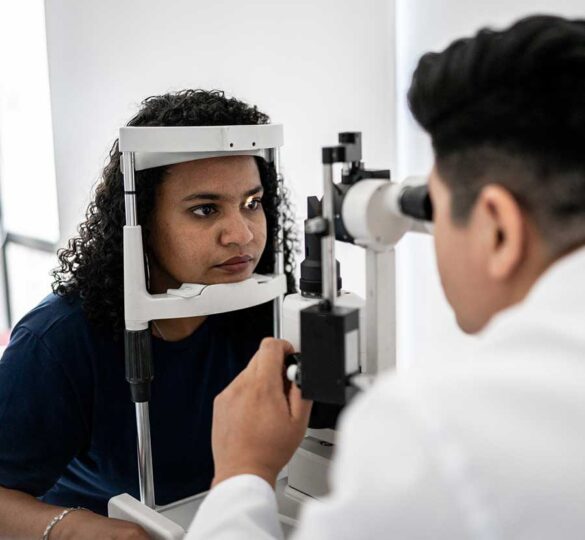Ron Payne: “I’ve Seen What Glaucoma Can Do”
Ron Payne of Philadelphia has seen both his mother and his sister lose their sight to glaucoma.

Glaucoma is the second leading cause of blindness in the United States and the leading cause of blindness in African Americans, Hispanics and Latinos. Ron Payne of Philadelphia has seen both his mother and his sister lose their sight to this disease.
But just because you have glaucoma, doesn’t mean you will go blind. According to Ron Payne (age 70), “My brother Harold is 72 years old and he was diagnosed on the same day as my sister nearly 50 years ago. He has been very diligent about putting in the eye drops that he has been prescribed. His sight is fine today.” Harold’s vision is still pretty sharp. He’s been a photographer most of his life, a profession that demands good vision.
Glaucoma is More Common in African Americans
“The Payne family is an excellent example of how this disease can strike,” said Dr. Alan L. Robin, a Baltimore glaucoma specialist and an Associate Professor of Ophthalmology at renowned Johns Hopkins University. Glaucoma hits families, and is more common in African Americans like the Paynes, but it is a manageable chronic disease if you find out you have it early enough and you take care of it.”
If it’s not treated, just consider what has happened to Ron Payne’s sister.
Ron’s sister Barbara was a social worker in New York City before she quit her job to take care of her mother who was also diagnosed with glaucoma late in life. Unfortunately, Barbara was not vigilant in taking her medication and later couldn’t afford the drops. Her vision has gradually deteriorated until, after her mother died blind, she too is now severely visually impaired.
African Americans between the ages of 45 and 65 are an astonishing 15 times more likely to go blind from glaucoma than Caucasians with glaucoma in the same age group. “We don’t know why African Americans are so much more prone to the disease than whites,” said Dr. Robin. “Not only is the disease more prevalent in blacks, it is also more aggressive. We have to do a better job of early detection.”
Getting A Proper Eye Exam
Dr. Robin asks, “When is the last time you had your eyes checked?”
“Just getting checked for glasses is not enough. If you didn’t have your eyes dilated by an eye care professional, you haven’t been checked for glaucoma. And if you haven’t been checked, you won’t know you have the disease until a lot of damage has occurred. That’s why an annual exam of your eyes is critical.”
Ron Payne understands this. His sister Barbara now lives with him. He is the only one of his siblings who doesn’t have glaucoma, but he knows even now at the age of 70, he is still at risk. So he gets his eyes checked regularly. It’s a good thing he does because if a member of your family has glaucoma, you are four times more likely to also develop it.
Ron is a supporter of the Glaucoma Research Foundation and helps them raise money by telling his family’s story. “Awareness is key,” said Payne. “People need to know they have glaucoma and then need to take care of their disease. I’ve seen what it can do to families, and there’s no reason for this to happen.”
Article by Tony Marino for Google News, edited by Andrew Jackson for the Glaucoma Research Foundation website. First posted on March 3, 2011; Reviewed on June 14, 2022